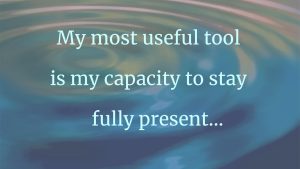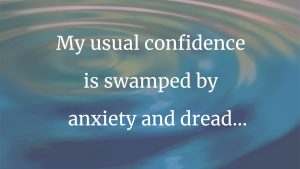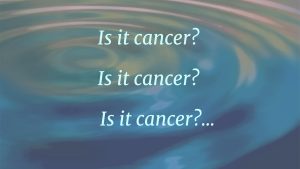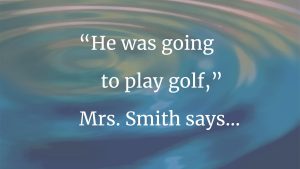After finishing my third-year clinical rotations in medical school, I was feeling sleep-deprived and stressed out. The problem, I finally realized, was the ridiculous amount of pressure I’d put on myself to impress my attending physicians and get good grades.
My father is an ophthalmologist and cornea/cataract specialist. After routinely rejecting his career advice throughout my undergraduate years, I’d entered medical school–and, to my father’s delight, found myself increasingly fascinated by his field.
Boarding the plane, I was a twitchy mess of nerves. Having just finished studying for and taking a physician board exam, I couldn’t wait to get back to seeing patients again.
The drive from the airport to the mission complex was harrowing. Traffic laws seemed optional; motorists darted into and out of each other’s way in what seemed a variation of the game of chicken. Small packs of wild dogs ran through the streets. People were living in lean-tos on top of discarded plastic bags and cardboard. I saw a legless middle-aged man, tattered flip-flops pressed against his palms, propelling himself along on his hands.
Our guide, Justin, pointed out and named several blind beggars, most being led by children.
“How do you know them?” I asked.
“I’ve seen them before,” he replied. “They are people whose eye disease could not be treated.” He added, “You know, in this part of Kenya, blindness is considered just part of getting old.”
I thought of my grandparents, who’d had their cataracts removed at the first sign of vision problems; they’d complained about having to sit for an hour beforehand in the clinic’s plush waiting room.
We were welcomed at the mission with open arms, partly because of my father’s specialized skills, but mostly because of the donated supplies we’d brought–several hundred intraocular lens implants for cataract surgery, and close to a thousand bottles of ophthalmic medicines and drops.
“We ran out of lenses last week,” one nurse told us. “You are messengers from God.” Little did she know how undivine I was feeling.
The clinic’s director, Fredrick Korir, a Kenyan doctor in his early thirties, trained as a cornea specialist in India, but at the mission clinic, he mainly functions as a general ophthalmologist, treating external eye disease, cataracts, glaucoma and the like.
In my first days there, I noticed that Dr. Korir spent no time complaining about his seemingly impossible job–giving numerous patients high-quality eye care without having the equipment needed to properly treat many common diseases. Working with cheerful efficiency, he treated his patients with deep and unfailing respect. They, in turn, were remarkably polite, patient and grateful for the chance to receive vision-restoring surgery at the hands of a specialty-trained physician–a great rarity in most regions of Kenya.
My own day-to-day responsibilities alternated between seeing patients in the free clinic and assisting in the operating room, referred to as the “theater.” During cataract surgery, I learned, patients receive no general anesthesia–merely a nerve block in the area behind the eyeball, supplemented with topical numbing drops.
Clinically speaking, my personal high point was performing my first peribulbar nerve block, with a lot of help from Dr. Korir. But other parts of my experience left an even deeper impression.
I was particularly struck by Dr. Korir’s selfless attitude. He didn’t hesitate to ask my father questions, and he seemed unconcerned as to how this might affect anyone’s perception of him. If he expressed any anxiety, it was over his patients’ welfare.
I was also impressed by the deep respect and trust shown to healthcare providers. When Dr. Korir spoke, people quietly listened and unquestioningly accepted his treatment plans.
“Do you enjoy having patients who are so agreeable?” I asked. His response surprised me.
“Although it’s nice for physicians to have such trusting patients, their uncritical acceptance breeds complacency,” he said. “Kenyan patients accept the current medical system as it is, instead of demanding that it be better.”
This caveat notwithstanding, day after day I witnessed how medicine can transform someone’s life. I’ll never forget watching an elderly man take off his eye patch, the day after surgery, and erupt into a giant smile as he realized that he could see once again. Literally overnight, cataract surgery had restored his independence and autonomy.
By the trip’s end, I couldn’t have cared less what anyone thought of my knowledge base. I wasn’t caught up in trying to get honors in a clinical rotation; I was busy bringing thirsty children glasses of water or leading elderly women to rickety chairs so that they could rest their feet. Like Dr. Korir, I wondered only, Did I help my patients?
I still hope to be accepted into an ophthalmology residency. I would love being able to help people to see, and I’d like to travel the world bearing witness to the human condition and helping to improve it. But I’m no longer an anxious mess. There are many ways to contribute to the field of medicine, ophthalmology being just one.
I arrived in Kenya with the narrow perspective of a third-year medical student, but my experience there has opened my eyes to a broader view of the world and of myself. It’s a vision that I’ll try to hold onto, no matter where my medical career takes me.








6 thoughts on “Vision Quest”
An absolutely wonderful, direct, accessible and inspirational story that, as the other commentators have said, gets us back to what our calling is all about. Thank you Alex and thank you Pulse. Also uniquely well suited to countering our COVID angst and malaise, and to supporting the faith and wonder of this season of Passover, Easter and Ramadan.
Well written and deeply compassionate in a way that resonates so strongly. Great work Alex and hope to read more like these as you crush residency!!
This is a reminder of why we chose to be physicians/healthcare workers in the first place. It is easy to get caught up in the frivolous aspects of healthcare, but helping those in need will always be the most rewarding aspect. Great article!
This is my kind of story!!! Thank you so much.
Thank you for writing a touching, human account of what the pressures are for medical students to succeed and impress in our current medical educational system and giving a great example of how to counter them. The end result is a compassionate physician.
Good article, Alex, including the ophthalmological puns in the last paragraph of “opening my eyes” + “broader view”
+ It’s a vision”